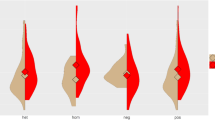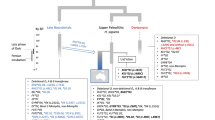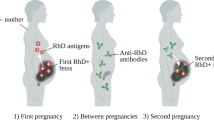Abstract
The Rh blood group is the most polymorphic human blood group system, and is clinically significant in transfusion medicine. Individuals are classified as Rh-positive and Rh-negative depending on the presence or absence of the D antigen on the red cell surface. The RhD-negative trait could be generated by multiple genetic mechanisms, which have been shown to be ethnic group-dependent. In this study, we evaluated the status of seven RHD-specific exons (exons 3, 4, 5, 6, 7, 9, and 10) and RH intron 4 in 119 Chinese blood donors, using the sequence-specific primers polymerase chain reaction (SSP-PCR). Of the 87 individuals who were RhD-negative, 52 with the ce/ce, ce/cE, or Ce/ce genotype (60%) lacked the above seven RHD exons; 22 with the Ce/Ce or Ce/ce genotype (25%) had all the RHD exons examined; 13 with the Ce/ce genotype (15%) carried at least one RHD exon. Antigen association analysis suggested the existence of a novel class of RhD-negative associated haplotypes in the Chinese, tentatively denoted D(nf)Ce. The D(nf)Ce haplotype consisted of a normal RHCe allele and a nonfunctional RHD gene, which vary depending on the structure of the RHD gene. Among the RhD-negative Chinese, the estimated frequencies of the dce, dCe, and D(nf)Ce haplotypes were 0.7500, 0.0465, and 0.2035, respectively. No statistically significant deviation from Hardy-Weinberg equilibrium was observed using this genetic model.
Similar content being viewed by others
Log in or create a free account to read this content
Gain free access to this article, as well as selected content from this journal and more on nature.com
or
Author information
Authors and Affiliations
Additional information
Received: March 31, 2000 / Accepted: March 31, 2000
Rights and permissions
About this article
Cite this article
Lan, J., Chen, Q., Wu, D. et al. Genetic polymorphism of RhD-negative associated haplotypes in the Chinese. J Hum Genet 45, 224–227 (2000). https://doi.org/10.1007/s100380050006
Published:
Issue date:
DOI: https://doi.org/10.1007/s100380050006
This article is cited by
-
RHD Genotyping by Molecular Analysis of Hybrid Rhesus box in RhD-Negative Blood Donors from Iran
Indian Journal of Hematology and Blood Transfusion (2019)
-
Whole exon 5 and intron 5 replaced by RHCE in DVa(Hus)
Journal of Human Genetics (2004)
-
RHD positive haplotypes in D negative Europeans
BMC Genetics (2001)



